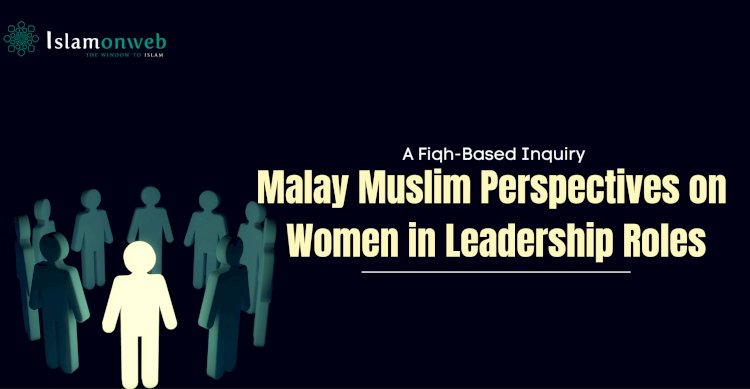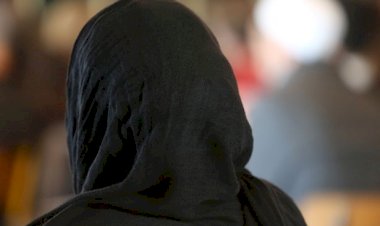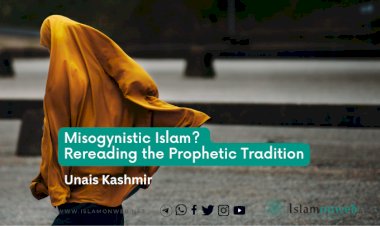Malay Muslim Perspectives on Women in Leadership Roles: A Fiqh-Based Inquiry
Leadership and the role of a leader are among the most studied concepts in education and management due to their profound impact on individuals, organizations, and societies. Islam emphasizes that every individual, including women, is a leader in some capacity, as reflected in the Prophet Muhammad’s saying that everyone is a leader responsible for their flock.
This research explores the perspectives of Malay Muslims regarding the roles of women in leadership positions through a Fiqh-based inquiry. Fiqh, or Islamic jurisprudence, offers a framework for understanding the religious and legal implications of women’s leadership within Islam. The study adopts a quantitative research method, using structured surveys and questionnaires to collect responses from the Malay Muslim community regarding their views on women in leadership.
The research begins by defining the general concept of women’s leadership, then presents a field study conducted among Malay Muslims in Kuala Lumpur and at the International Islamic University Malaysia (IIUM). The study analyses and discusses their perspectives in light of Islamic scholarly opinions and proposes relevant solutions grounded in Maqasid Shariah (higher objectives of Islamic law).
Leadership is defined here as a process where individuals inspire and motivate others to achieve shared goals. Women’s leadership specifically refers to participation in decision-making and authority roles, particularly in corporate settings. In Malaysia, women have advanced in education and the workforce, resulting in greater representation across sectors. Initiatives like the ILIM forum on “Women’s Leadership in Building Malaysia MADANI” and the government’s 30% target for female leadership—including in Cabinet and private sectors—highlight the country's commitment to overcoming barriers like the glass ceiling and supporting women's leadership potential.
This research addresses two central questions: What is the Islamic perspective on women’s leadership? And what are the views of Malay Muslims on this issue? Within the Malay Muslim community, perspectives on women's leadership vary depending on cultural, societal, and religious influences. The roles of women in politics and religion continue to attract attention and debate.
The issue is significant as it touches on the status of women in modern Muslim societies and the relevance of Islamic law to contemporary challenges. This study aims to improve understanding of women’s rights and potential within social and administrative systems and contribute to Shariah-based guidance on women’s leadership. The topic remains a subject of active debate among scholars, politicians, and the public. Whether women can hold top leadership positions—such as head of state or organizational leader—has been discussed since classical Islamic times and continues to generate interest.
Most traditional scholars from the Shafi'i, Maliki, and Hanbali schools hold that women should not occupy top leadership positions. This position is based on the Qur’anic verse:
"Men are the protectors and maintainers of women" (An-Nisa: 34),
and the hadith:
“A people who entrust their affairs to a woman will not succeed” (Bukhari).
However, scholars such as Ibn Hazm and contemporary figures like Dr. Yusuf al-Qaradawi offer alternative interpretations. They argue the prohibition is contextual, not absolute. According to them, women may hold leadership roles if they meet criteria like trustworthiness and if the role aligns with Shariah principles.
Findings from the field study were divided into three sections: demographic data, Fiqh-based understanding of women's leadership, and general views of Malay Muslims. The results showed significant diversity in responses.
In the Fiqh section, most respondents agreed that Islam permits women to assume leadership roles. However, many were neutral when asked whether culture or religious texts influenced their views more. This neutrality reflected tension between traditional values and modern perspectives. Respondents also distinguished between political and religious leadership, with most agreeing that women could lead organizations without violating Islamic principles. A majority agreed that the Qur’an and hadith define women's roles in public leadership, and many expressed support for female political leaders. The idea that women could become religious scholars was also supported, provided they had a strong grounding in Islamic jurisprudence.
In the general views section, data showed that 58% believed that primary leadership should remain with men, in line with traditional interpretations. Meanwhile, 27% disagreed, and 16.2% were unsure. This suggests a generational and educational shift, especially among youth, toward a merit-based perspective on leadership. Open-ended responses revealed two main views: one highlighting emotional sensitivity as a limitation for female leaders, and another emphasizing that leadership should be based on capability, knowledge, and integrity—not gender. Many participants agreed that adherence to Islamic principles should be the true criterion for leadership.
The study found a transition in public opinion, with increasing openness among educated and progressive groups toward women’s leadership. While cultural and religious traditions still influence perceptions—especially among older generations—many agreed that women today possess the education, experience, and character needed for effective leadership. Respondents recognized traits like diligence, responsibility, and precision as strengths enhancing women’s roles in leadership.
Based on these findings, several recommendations have been proposed to address societal challenges surrounding women’s leadership in the Malay Muslim community. First, it is essential to implement educational programs and community seminars aimed at correcting common misconceptions. Many respondents showed neutrality on women’s leadership, suggesting cultural norms play a bigger role than religious texts. Therefore, community-based awareness initiatives are needed. These should include workshops, public lectures, and seminars led by qualified scholars capable of presenting a balanced understanding of the Qur’an and Sunnah. The goal is to correct cultural misconceptions while promoting acceptance of women in leadership roles, especially in education, social work, and religious studies. From a Maqasid Shariah perspective, these efforts help preserve intellect (hifz al-‘aql), promoting rational thought and protecting society from harmful ideologies.
Second, ensuring women's right to education and intellectual development is vital. Many women today possess high levels of education and should not be deprived of contributing to national leadership. Leadership training programs rooted in Islamic ethics should be established. These should emphasize honesty, integrity, justice, and understanding of Shariah principles, including modesty (‘awrah), respectful interaction, and social responsibility. This ensures that female leadership remains professional and ethically grounded in Islamic values. Such programs would help develop leaders who combine skills and moral foundations to impact their communities positively.
Third, media plays a key role in shaping public perception. By showcasing successful female Muslim leaders, increasing awareness, and debunking myths about Islam’s stance on women in leadership, media can foster more balanced discussions. Through educational content, panel discussions, and scholar interviews, media can promote dialogue based on authentic teachings. This raises public awareness and empowers women to pursue leadership confidently and with purpose.
Fourth, religious leaders are influential in shaping societal beliefs. By providing clear and supported interpretations of Islamic sources, they can help communities distinguish between culture and religion. Many restrictions on women’s roles are cultural, not doctrinal. When religious leaders support women’s education and participation in religious sciences and leadership roles, they promote inclusion while reinforcing the legitimacy of women in leadership within Islamic boundaries.
In conclusion, the issue of women’s leadership in Islam is not a fixed legal ruling but falls within the domain of ijtihad, which may vary with context, time, and place. The Malay Muslim community in Malaysia is undergoing a shift toward a more inclusive understanding, provided it remains within the framework of Shariah. Continuous efforts in education, opportunity creation, and correction of misconceptions are essential to enable women to contribute effectively to the leadership and advancement of society.
Authors:
- Aini Fatimah Muhammad Shazali,
- Puteri Saifira Qairina Mohd Fazli,
- Nur Hanani Binti Mohd Puad
About authors: Aini Fatimah, Puteri Saifira Qairina, Nur Hanani are pursuing their Bachelor's degree in Islamic Revealed Knowledge and Heritage (Fiqh and Usul al-Fiqh) at AHAS, KIRKHS, in the International Islamic University Malaysia.
[As part of Synergised Academic and Student Activities, this article was prepared for the course RKFQ 4315, Qadaya Fiqhiyyah Mu’asirah: Contemporary Juristic Issues at AHAS KIRKHS, IIUM (Sem 2, 2024-2025).]
References
Women’s leadership, a major competitive advantage. Esade - Do Better. https://dobetter.esade.edu/en/women-leadership-competitive-advantage
Heanglee. (2018, September 23). Pastikan 30% wanita di dalam Kabinet dan laksanakan pembaharuan ke arah kesamarataan gender. Women’s Aid Organisation. https://wao.org.my/pastikan-30-wanita-di-dalam-kabinet-dan-laksanakan-pembaharuan-ke-arah-kesamarataan-gender/#:~:text=Joint%20Action%20Group%20for%20Gender%20Equality%20(JAG),perundangan%20dan%20institusi%20untuk%20mempromosi%20kesamarataan%20gender
Maimun, M. (2012, January 1). Kontroversi Wanita menjadi Pemimpin: Kajian Analisis Metodologis. Neliti. https://www.neliti.com/publications/177694/kontroversi-wanita-menjadi-pemimpin-kajian-analisis-metodologis#id-section-content
Muhammad Abid MALIK & Sameen AZMAT, 2019. "Leader And Leadership: Historical Development Of The Terms And Critical Review Of Literature," Annals of the University of Craiova for Journalism, Communication and Management, Department of Communication, Journalism and Education Sciences, University of Craiova, vol. 5(1), pages 16-32, November.
Sudirman, S. B. (n.d.). Wacana Kepimpinan ILIM: “Kepimpinan Wanita dalam Membangun Malaysia MADANI.” https://ilim.islam.gov.my/ms/berita/1556-wacana-kepimpinan-ilim-kepimpinan-wanita-dalam-membangun-malaysia-madani
Disclaimer
The views expressed in this article are the author’s own and do not necessarily mirror Islamonweb’s editorial stance.
























Leave A Comment